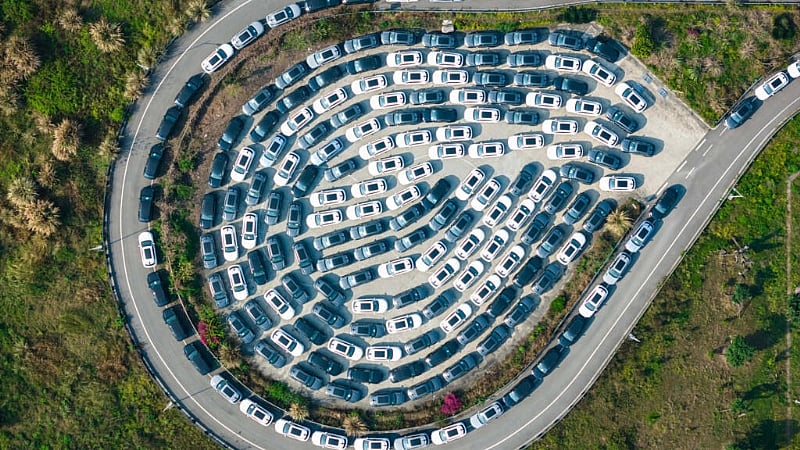On Friday, the European Union (EU) member states formally approved the implementation of substantial additional tariffs on electric vehicles (EVs) manufactured in China, despite significant dissent from key players, notably Germany. This move follows a provisional approval by the European Commission in June, which stemmed from an inquiry that determined the unfair advantages bestowed upon Chinese auto manufacturers through substantial state aid. The decision permits the European Commission to impose steep tariffs, reaching as high as 35.3 percent on top of the existing 10 percent duties, for a duration of five years beginning at the end of October. While ten member states, including influential nations like France, Italy, and Poland, voted in favor of the tariffs, dissent came from Germany and Hungary, with twelve others, including Spain and Sweden, opting to abstain. Interestingly, the opposition did not reach a critical mass to halt the tariffs, which required a majority representing at least 65 percent of the bloc’s population.
The EU’s action stems from a desire to create a level playing field for its automakers against their Chinese counterparts, who benefit from extensive government support. With the European Commission asserting that the automotive sector provides approximately 14 million jobs within the EU, these protective measures are intended to safeguard the industry’s interests. However, the new tariffs also extend to electric vehicles produced in China by international firms like Tesla, which will face a tariff rate of 7.8 percent. The introduction of the tariffs has drawn criticism, particularly from Germany, where automotive giants such as BMW, Volkswagen, and Mercedes-Benz have substantial investments in the Chinese market. German officials argue that the EU’s protectionist approach may backfire and urged for continued dialogue with Beijing to address the root issues.
As these tariffs have been debated, fears have emerged that the EU’s decision could ignite a renewed trade conflict with China. The Chinese government has already condemned the proposed tariffs as overtly protectionist and has warned of retaliatory actions. In fact, China has initiated investigations into various European goods, including brandy, dairy, and pork, as a direct response to the EU’s stance on tariffs. The potential for an escalating trade war was underscored by Hungarian Prime Minister Viktor Orban, who criticized the tariffs as a further step into a confrontational economic climate. Notably, these negotiations come amidst broader tensions, as the EU has also opened investigations into Chinese subsidies related to solar panels and wind turbines.
The differing positions among EU member states highlight the complexity of balancing domestic interests with the overall goal of fostering a robust automotive industry. France’s push for the tariffs is largely framed around maintaining competitive equity between EU and Chinese manufactures, while Germany’s resistance showcases concerns about potential adverse impacts on its own economy given its significant automotive sector’s reliance on the Chinese market. Moreover, Spanish Prime Minister Pedro Sanchez’s last-minute request for a reconsideration of these tariffs reflects a growing awareness among EU stakeholders of the potential fallout from a trade war with China.
The situation is further complicated by the context of global trade dynamics, with both Canada and the United States having previously enacted even steeper tariffs—up to 100 percent—on Chinese electric car imports. This places the EU’s tariffs within a broader framework of international relations and economic policy, where countries are grappling with the implications of protectionism in a rapidly changing global market. As Europe navigates this terrain, the stakes are high not only for the automotive industry but also for its commitment to achieving a cleaner and greener economy.
As the EU moves forward with its tariff strategy, the path remains fraught with challenges. The European Commission has indicated that there remains the possibility for tariff reductions if China can adequately address the EU’s concerns regarding state aid and market competition. However, achieving a resolution that satisfies both parties will likely require significant negotiation and diplomacy. The EU’s aim to foster its clean technology industry while mitigating trade tensions with China represents a delicate balancing act, with the potential repercussions extending well beyond the automotive sector into broader economic relations and environmental commitments globally.














